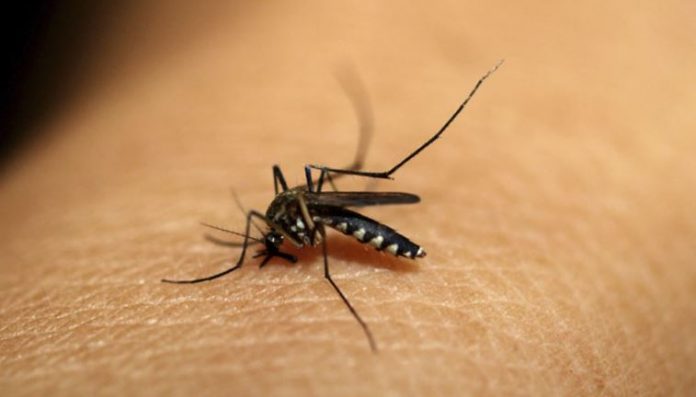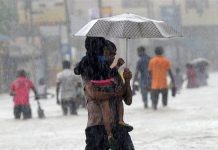The National Dengue Control Unit says that there is an increase in the number of dengue patients with the active South West monsoon rains. As there are many places where rain water can accumulate, the risk of mosquito breeding has increased, according to the National Dengue Control Unit.
In order to minimize the increased risk of dengue and prevent a dengue epidemic, the National Dengue Control Unit has taken steps to implement a special two-day program today and tomorrow on dengue eradication in eight districts. Colombo, Gampaha, Kalutara, Kandy, Jaffna, Vavuniya, Trincomalee and Batticaloa districts have been identified as the most vulnerable districts.
The National Dengue Prevention Unit and the Presidential Task Force on Dengue Prevention have taken steps to implement this program with the participation of 880 teams from 52 MOH divisions. Since houses, and public places such as schools, work sites, factories, institutions, and religious sites are at a higher risk of breeding mosquitoes, the National Dengue Prevention requests the people to inspect such places once a week for 30 minutes and remove the possible mosquito breeding sites. The schools are instructed to inspect and remove mosquito breeding sites on every Friday from 11:00 – 11:30 a.m.
The National Dengue Prevention Unit urges the public to immediately go to a hospital and obtain treatment if they are suspected of having dengue fever. High fever, uncontrolled vomiting, abdominal pain, dizziness, reduced urinary output are symptoms of dengue fever. Pregnant mothers and infants must receive immediate medical treatment if symptoms of dengue fever present, the Unit advises. According to the Epidemiology Unit so far this year 27,478 suspected dengue cases have been reported from all over the island.
The National Dengue Control Unit says that there is an increase in the number of dengue patients with the active South West monsoon rains. As there are many places where rain water can accumulate, the risk of mosquito breeding has increased, according to the National Dengue Control Unit.
In order to minimize the increased risk of dengue and prevent a dengue epidemic, the National Dengue Control Unit has taken steps to implement a special two-day program today and tomorrow on dengue eradication in eight districts. Colombo, Gampaha, Kalutara, Kandy, Jaffna, Vavuniya, Trincomalee and Batticaloa districts have been identified as the most vulnerable districts.
The National Dengue Prevention Unit and the Presidential Task Force on Dengue Prevention have taken steps to implement this program with the participation of 880 teams from 52 MOH divisions. Since houses, and public places such as schools, work sites, factories, institutions, and religious sites are at a higher risk of breeding mosquitoes, the National Dengue Prevention requests the people to inspect such places once a week for 30 minutes and remove the possible mosquito breeding sites. The schools are instructed to inspect and remove mosquito breeding sites on every Friday from 11:00 – 11:30 a.m.
The National Dengue Prevention Unit urges the public to immediately go to a hospital and obtain treatment if they are suspected of having dengue fever. High fever, uncontrolled vomiting, abdominal pain, dizziness, reduced urinary output are symptoms of dengue fever. Pregnant mothers and infants must receive immediate medical treatment if symptoms of dengue fever present, the Unit advises. According to the Epidemiology Unit so far this year 27,478 suspected dengue cases have been reported from all over the island.
















